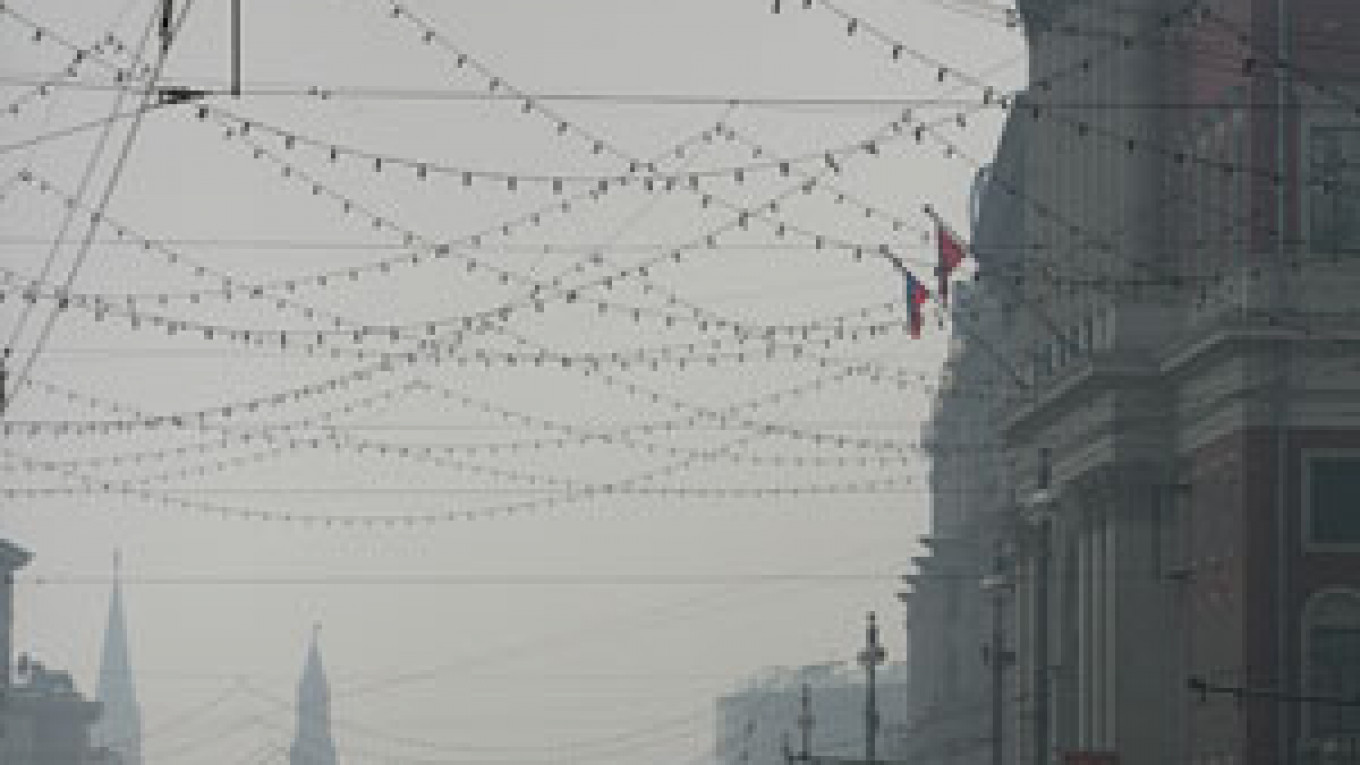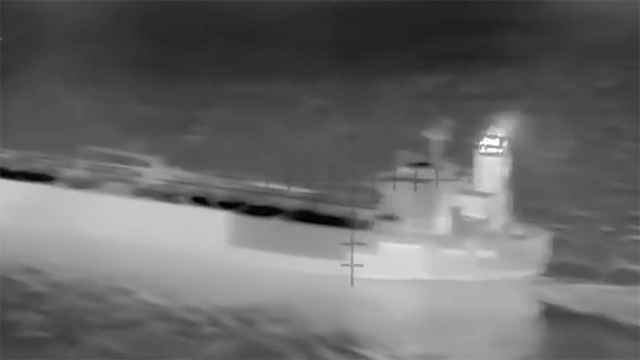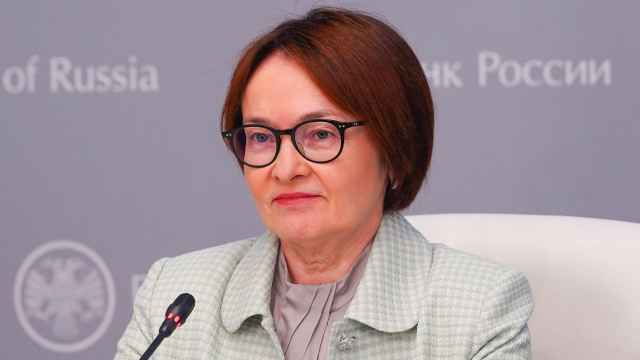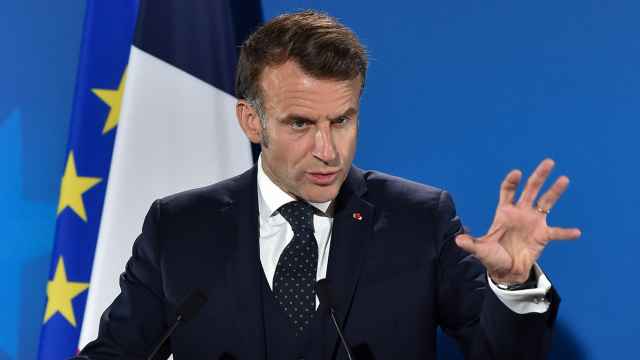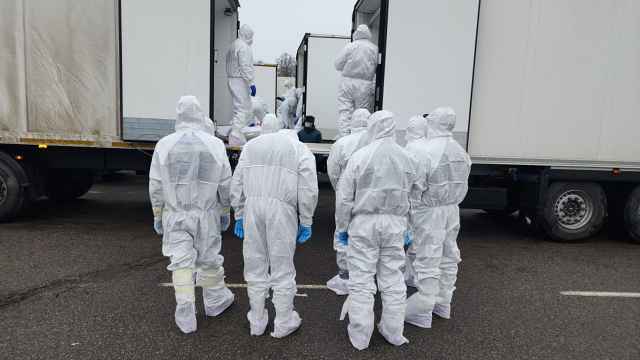After a few days’ break, Muscovites were again left gasping for a breath of fresh air Sunday as smog from wildfires returned to the city, but weather forecasters said the toxic smoke would not last.
Sunday’s smog drifted to Moscow from the Ryazan and Vladimir regions, where peat bogs were burning after being ignited by this summer’s record heat wave, the Emergency Situations Ministry said in a statement.
The ministry said it had reclaimed another 3,000 hectares from fire by Sunday, but an area of 53,500 hectares nationwide, including 60 hectares in the Moscow region, were still up in flames. That compares with 64,000 hectares on fire Friday.
More than 166,000 people were fighting the blazes nationwide Sunday.
The Moscow regional branch of the Emergency Situations Ministry said Saturday that it did not need help from volunteers anymore, but later the ministry’s central office said volunteers were still required to help clean up the aftermath of the fires and to prevent new blazes.
The United States delivered a first shipment of firefighting aid to Moscow’s Vnukovo Airport on Friday. The Foreign Ministry said in a statement that it accepted “with gratefulness” the two planeloads of fire-resistant firefighting equipment, including shoes, helmets, glasses and pumps.
The U.S. State Department said it planned to deliver aid and equipment worth $4.5 million.
Thailand’s Orthodox community collected about $10,000 for Russians affected by the fires, RIA-Novosti reported.
As of Friday, 10 countries were contributing to Russia’s firefighting efforts, including about 550 people with six airplanes, seven helicopters and 100 other types of firefighting equipment, Emergency Situations Minister Sergei Shoigu said. The foreign help will continue until Tuesday, he said.
Moscow residents braced for another day of smoke and face masks after waking up to the bitter smell of smoke drifting into open apartment windows. But the smog began to clear Sunday afternoon. Tatyana Sukhova, a 36-year-old housewife, said she did not dare to leave her apartment until late Sunday afternoon because of the smoke. “Now the air looks cleaner, and I decided to go out with my little son,” Sukhova said, sitting in a playground in northern Moscow on Sunday evening. “But you can still smell smoke in the air.”
The concentration of certain hydrocarbons in Moscow air on Sunday morning was 5.4 times above the maximum permissible levels, said Alexei Popikov, an official with Moscow city’s environmental monitoring agency, Mosekomonitoring.
He added that concentration of carbon monoxide was 30 percent above the normal level, RIA-Novosti reported.
But Popikov said the smoke was unlikely to return Monday, when the wind will change.
Temperatures are expected to hover between 25 to 30 degrees Celsius with occasional rain showers over the next five days, the federal weather bureau said.
Meanwhile, the smoke has spread to areas not affected by wildfires, including the Penza and Saratov regions, as well as Kazakhstan and Ukraine. Smog reached eastern Ukraine’s Kharkov region on Saturday, Ukrainian news agency Unian reported, adding that it was coming from peat bogs burning in the Voronezh and Ryazan regions in central Russia.
Wildfires were still threatening a nuclear research center in the town of Sarov in the Nizhny Novgorod region, local emergency officials said Sunday.
“Unfortunately, the fire is challenging the federal nuclear center from all sides,” Rosatom chief Sergei Kiriyenko said in televised remarks Saturday.
He repeated earlier comments that all radioactive and nuclear materials had been removed to storage facilities and were completely safe.
The city of Nizhny Novgorod itself choked on thick smog Sunday after local firefighters tried to stop regional blazes by igniting preventive fires.
The local airport continued operating without delays, but river traffic on the Volga had to be halted, the Emergency Situations Ministry said.
The death toll from fires remained unchanged at 53 people Sunday. Thousands of people have lost their houses.
Shoigu said new fire-safety measures should be drafted and new equipment supplied to his ministry after this summer’s disaster.
“We see a problem in that our units operate in cities and are not equipped to work in forests,” Shoigu said, adding that firefighters needed a pay raise, Interfax reported. He did not elaborate on their salaries.
The old firefighting system underwent a drastic change after the enactment of the 2007 Forest Code, which put private companies contracted by the Federal Forestry Agency in charge of combating wildfires.
Shoigu also criticized stores for driving up prices on fans, air conditioners and bottled water, which he said cost up to 2 1/2 times more now than before the wildfires. “Let’s expose those people. What are we afraid of? Let’s make a list of the companies hiking prices,” Shoigu said.
Last week, archbishop of Stavropol and Vladikavkaz, Feofan, also denounced stores for raising prices on air conditioners by five times “while people are dying of heat,” Interfax reported.
A Message from The Moscow Times:
Dear readers,
We are facing unprecedented challenges. Russia's Prosecutor General's Office has designated The Moscow Times as an "undesirable" organization, criminalizing our work and putting our staff at risk of prosecution. This follows our earlier unjust labeling as a "foreign agent."
These actions are direct attempts to silence independent journalism in Russia. The authorities claim our work "discredits the decisions of the Russian leadership." We see things differently: we strive to provide accurate, unbiased reporting on Russia.
We, the journalists of The Moscow Times, refuse to be silenced. But to continue our work, we need your help.
Your support, no matter how small, makes a world of difference. If you can, please support us monthly starting from just $2. It's quick to set up, and every contribution makes a significant impact.
By supporting The Moscow Times, you're defending open, independent journalism in the face of repression. Thank you for standing with us.
Remind me later.


